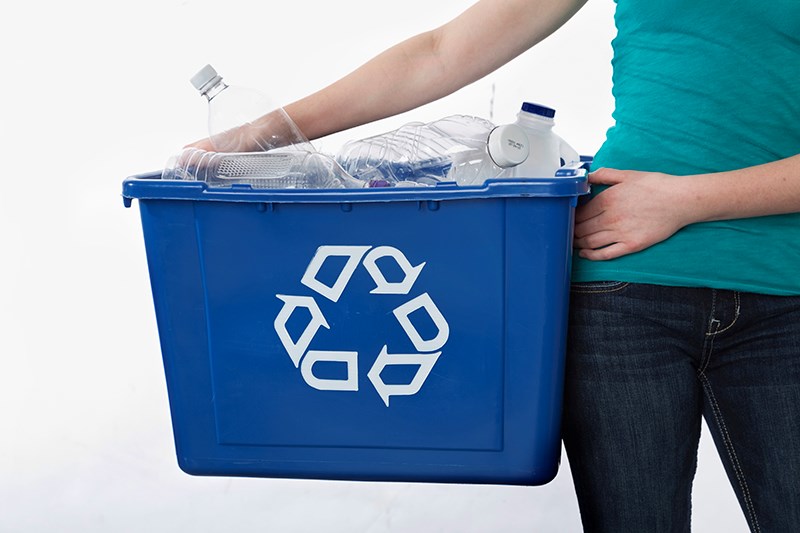George Mathewson
Should plastic grocery bags go in the blue box?
Are plastic mini-yogurt containers recycled?
If you put a glass jar in a clear plastic recycling bag, instead of tossing it in the garbage, are you really helping the environment?
The answers: no, mostly no and double no.
Sarnia’s Environmental Committee took a road trip last fall to the massive recyclable sorting centre in Cambridge to see what’s what. Its newly released report contains several surprises.
Sarnia has a single-stream recycling system, which means everything placed in the blue box is collected by Emterra and trucked to a Waste Management transfer station in Petrolia. From there, the jumble of paper, glass and cans is taken to Cambridge’s materials recovery facility.
Why should we care? Because bad disposal decisions in the kitchen not only add to our carbon footprint, they increase the municipal taxes we pay.
The stuff is dumped on a series of vertically stacked conveyers that sort by size. Magnets grab up metals and air blasts separate out plastic bottles, yet much of the sorting is done by hand, the committee found.
Sarnia is charged by weight for the material taken to the centre but gets a rebate for whatever Waste Management can sell to manufacturers. Paper and newsprint have value. So do mixed plastics, aluminum and especially high-quality cardboard and PET plastic, the material in pop bottles and containers with a #1 recycling code on the bottom.
Based on the committee’s findings, here are some tips to help the planet and reduce our taxes.
Rinse out containers. Jars and tubs with food still in them are discarded and landfilled.
Currently, glass has no value. As a result, we’re paying a premium to have heavy, worthless bottles trucked 200 kilometres, sorted by hand, then hauled to the dump. Nevertheless, we should continue blue-boxing glass because markets fluctuate quickly and alternatives - such as a road-paving additive - are being found, said committee member Coun. Brian White.
“But this has changed my thinking on buying things in glass,” he said. “Plastic is more a salable product.”
Avoid single-serve containers. Generally, the automatic sorters don’t catch anything smaller than a fist. Though some mini-yogurt containers are picked out by hand, much ends up as waste.
Use cloth shopping bags. Plastic bags are no longer recycled, including those clear or blue-tinted bags intended for recyclables. What’s more, plastic bags get tangled in the machinery, causing process shutdowns. They’re garbage.
Separate your recyclables. Assembly line workers don’t have time to pull out cans packed in jars, so the whole thing gets landfilled.
The bottom line? Fill your blue box with clean, loosely packed recyclables only. No running shoes, car batteries or other junk. And if in doubt, throw it out.
